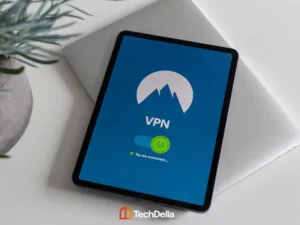Looking for fresh ideas on how to find a blog niche? You’re in the right place.
One of the first crucial steps before launching your blogging business is learning how to find a blog niche that actually works. If you’re starting a blogging business in 2026, then you already know how challenging it can be to identify the perfect niche for your blog.
The niche you choose will determine everything, from the amount of traffic you generate to your website monetization strategies and whether you’ll be able to create content that truly engages your audience.
Some blog niches prove highly competitive, making it difficult to secure a prominent position in search results. On the other hand, some niches might lack sufficient content demand or search queries, resulting in inadequate traffic for your blog to thrive.
This is why finding the right blogging niche is absolutely critical. If you plan to monetize your blog and become a recognized authority in your space, like Neil Patel or James Clear, then you need to find the right niche from day one.
Before we continue, for beginner bloggers who don’t know yet: what exactly is a niche in blogging? We’ll explore that in detail, and you’ll also learn proven strategies for discovering your perfect blog niche.
Let’s get started!
What is a Niche Blogger?
A niche blogger is a content creator who focuses exclusively on a specific topic or specialized segment of the market. For instance, a niche blogger might write about sustainable fashion, plant-based nutrition for athletes, or budget travel in Southeast Asia rather than covering broad topics like “fashion,” “health,” or “travel.”
While there are countless blog niches you can explore, the real challenge lies in knowing how to find a blog niche that aligns with your expertise, passion, and market demand.
What is a Niche in Blogging?
A niche in blogging refers to a specialized segment of the market or a distinct area of interest that caters to a specific audience. It involves creating content that addresses the needs, preferences, and concerns of a particular group of people who share common characteristics, interests, or problems.
Essentially, a blog niche is the unique subject or theme around which you center all your content. For instance, you could choose to start a travel blog business that focuses specifically on solo female travel or adventure travel for families.
Identifying and defining a niche is crucial for several key reasons:
- Targeted Audience: A well-defined niche helps attract a specific audience genuinely interested in your content, fostering a dedicated and engaged readership that returns consistently.
- Content Relevance: Focusing on a niche allows you to create content that is highly relevant and valuable to your audience, establishing you as an authority in that particular subject matter.
- Monetization Opportunities: Niche blogs often have superior monetization opportunities because advertisers and sponsors are more willing to invest in reaching a specific, engaged audience with proven purchasing power.
- Competition Differentiation: A well-chosen niche sets your blog apart from others in the crowded blogosphere, making it significantly easier to stand out and gain recognition.
- Passion and Expertise: Choosing a niche that aligns with your passion or expertise dramatically enhances the quality of your content and your enjoyment in creating it, leading to better long-term sustainability.
- Community Building: Niche blogs naturally foster tight-knit communities where readers feel understood and connected, leading to higher engagement rates and reader loyalty.
Beyond these benefits, having a clearly defined niche significantly improves your SEO strategy, including both on-page and off-page optimization. With recent Google algorithm updates emphasizing E-E-A-T (Experience, Expertise, Authoritativeness, and Trustworthiness), having a focused niche helps position your blog as an authority within that specific space.
This doesn’t mean multi-niche blogs are inherently unsuccessful, but they face more challenges in establishing a clear identity and attracting a dedicated audience. A well-defined niche allows you to cultivate a specific brand identity and become the go-to source for information within that particular subject area.
Additionally, within any niche, there are sub-niches or micro-niches that allow for even greater specialization. For example, within a travel blog niche, you could focus on sub-niches like sustainable travel, luxury travel on a budget, digital nomad destinations, or accessible travel for people with disabilities.
How Do I Create a Niche Blog?
Creating a successful niche blog involves several strategic steps to ensure your blog is well-defined, appeals to a specific audience, and stands out in the competitive online landscape.
Here’s a comprehensive step-by-step guide to help you create a profitable niche blog in 2026:
1. Identify Your Passion and Expertise
The first step in creating a successful blog niche is honest self-reflection. What topics genuinely excite you? What subjects could you discuss for hours without getting bored? What unique knowledge or experience do you possess?
Creating quality content and growing blog traffic becomes infinitely easier when you’re writing about subjects you deeply understand and care about.
In 2026, with AI content tools like ChatGPT and Claude producing vast amounts of generic content, readers and search engines are actively seeking content that demonstrates real expertise, unique perspectives, and authentic experience. Choose a niche that genuinely aligns with your interests, passions, and knowledge base.
2. Research Potential Niches Thoroughly
Once you have one or two unique blog niche ideas, the next critical step is validation through comprehensive market research.
Use tools like Google Trends, keyword research platforms (Ahrefs, SEMrush, or free alternatives like Ubersuggest), and social media listening to understand audience interests and search volume.
Look for niches that have substantial demand but aren’t completely oversaturated with established competitors. The sweet spot is a niche with proven interest but room for new voices and perspectives.
3. Define Your Target Audience Precisely
This is perhaps the most important step when creating your blog niche. You must clearly define exactly who you’re writing for, not just demographically, but psychographically as well.
Understand their age range, income level, education, career stage, pain points, aspirations, fears, and daily challenges. The more specifically you can describe your ideal reader, the more effectively you can tailor content that resonates deeply with them.
Create detailed reader personas that include their goals, frustrations, where they hang out online, what influencers they follow, and what problems keep them up at night.
4. Choose a Unique Angle or Perspective
There are millions of blogs creating content across virtually every niche imaginable. To attract and retain your target audience, you must differentiate yourself with a unique angle or voice.
This could be a specific aspect of your chosen niche that isn’t widely covered, a distinctive writing style or format, a contrarian perspective, or the intersection of two different niches (for example, “personal finance for creative entrepreneurs” or “fitness for busy parents”).
Your unique angle is what makes readers choose your blog over the hundreds of others in your space.
5. Select a Memorable Domain Name
Choose a domain name, either a free domain or a paid one, that clearly reflects your niche and is easy to remember, spell, and pronounce. Make it unique, brandable, and ideally include relevant keywords related to your niche.
For example, if your blog focuses on sustainable living for urban professionals, your domain might be something like “GreenCityLiving.com” or “EcoUrbanite.com.”
Avoid overly long or complicated names, numbers, or hyphens that make your domain difficult to share or remember.
6. Set Up Your Blog Platform
When setting up your blog, choose a reliable platform and hosting solution. WordPress hosting remains the most popular choice for serious bloggers due to its flexibility, extensive plugin ecosystem, and SEO capabilities.
If you’re a non-technical business owner looking to transition your brick-and-mortar business online, QuickLaunch can handle all the technical complexity for you, from setting up your website to integrating payment systems, online bookings, and other essential business tools. This allows you to focus on creating great content while the technical side is professionally managed.
Customize your blog’s design to reflect your niche’s aesthetic and your brand personality. First impressions matter enormously in retaining new visitors.
7. Create High-Quality, Valuable Content Consistently
Start creating exceptional content that directly addresses your target audience’s needs, questions, and interests. Consistency is absolutely key, develop a realistic content calendar and maintain a regular posting schedule.
Several blogging tools can help you plan, create, and schedule content efficiently. Focus on depth and quality over quantity, one comprehensive, well-researched article per week is far more valuable than five mediocre posts.
In 2026, aim for content that demonstrates genuine expertise, provides actionable insights, and offers perspectives that AI-generated content simply cannot replicate.
How Do I Find My Perfect Niche?
Finding your ideal blog niche involves a systematic combination of self-reflection, market research, and understanding your potential audience’s needs.
Here’s a proven framework to help you define your blog niche:
Assess Your Passion and Interests
- Passion and Interest: Identify topics that genuinely excite you. What subjects do you naturally gravitate toward? What do you enjoy learning about in your free time? Choose a niche that aligns with your authentic enthusiasm to maintain long-term commitment and avoid burnout.
- Skills and Expertise: Consider your professional skills, life experiences, and areas of knowledge. What are you genuinely good at? What unique perspectives can you offer? Your expertise significantly sets you apart and contributes to content quality and credibility.
Conduct Thorough Market Research
- Identify Current Trends: Use Google Trends, social media platforms, industry reports, and Reddit communities to identify trending topics and emerging interests. Look for areas with sustained interest rather than temporary fads.
- Analyze Competitor Landscape: Study successful blogs in your broader area of interest. Identify gaps in their content, underserved sub-niches, or areas where you can approach topics differently or more comprehensively.
- Keyword Research: Use tools like Ahrefs, SEMrush, or free alternatives to identify search volume, keyword difficulty, and related topics people are actively searching for.
Understand Your Target Audience
- Demographics: Clearly define your target audience, considering age, gender, location, education level, income status, and occupation.
- Problem Solving: Understand the specific problems, pain points, or needs your potential audience faces. Your niche should directly address these concerns and provide genuine solutions.
- Psychographics: Go deeper than demographics to understand their values, beliefs, aspirations, fears, and lifestyle choices.
Brainstorm and Evaluate Options
- Create a Comprehensive List: Brainstorm extensively without self-censoring. List potential niches based on your interests, expertise, and market research. Don’t limit yourself initially.
- Narrow Down Systematically: Evaluate each potential niche based on three key criteria: your genuine passion and expertise, demonstrated market demand and audience interest, and level of competition. Narrow your list to the 2-3 most promising options.
- Test Your Ideas: Before fully committing, create test content in your top niche choices. Publish a few articles, share them in relevant communities, and gauge audience response and engagement.
Assess Monetization Potential
- Evaluate Income Streams: Research potential monetization methods for each niche you’re considering. Explore options like affiliate marketing programs, sponsored content opportunities, digital products you could create and sell, coaching or consulting services, and advertising revenue potential.
- Audience Purchasing Power: Consider whether your target audience has the financial capacity and willingness to invest in products, services, or content in your chosen niche.
Seek Feedback and Validation
- Ask for Honest Opinions: Share your niche ideas with friends, family, online communities, or potential readers. Seek constructive feedback and genuine perspectives you might have overlooked.
- Join Niche Communities: Participate in forums, Facebook groups, Reddit communities, or Discord servers related to your potential niche. Observe conversations, identify common questions, and understand what content people truly value.
Find the Sweet Spot
- Combine Passion with Viability: The ideal niche exists at the intersection of what you’re passionate about, what you’re knowledgeable about, what people are actively searching for, and what has monetization potential. This sweet spot ensures both personal fulfillment and business viability.
- Allow for Flexibility: Choose a niche that offers room for growth and evolution. Your interests and expertise will expand over time, so select a niche that allows for natural expansion without complete repositioning.
Commit for the Long Term
- Make a Strategic Decision: Once you’ve identified your niche through this systematic process, commit to it for at least 12-18 months. Building authority and audience takes time, consistency, and dedication are essential.
- Stay Adaptable: While commitment is important, remain open to refinement based on audience feedback, analytics insights, and market evolution. Minor pivots within your niche are normal and healthy.
13 Best Profitable Niches for Blogging in 2026
Here are some of the most profitable and high-traffic blog niches for 2026:
1. Personal Finance and Wealth Building
- Cryptocurrency and digital assets investing
- Retirement planning for millennials and Gen Z
- Budgeting and debt elimination strategies
- Side hustles and passive income generation
- Real estate investing for beginners
2. Health, Wellness, and Longevity
- Biohacking and performance optimization
- Mental health and emotional wellness
- Plant-based and specialized diets
- Fitness for specific demographics (busy professionals, parents, seniors)
- Sleep optimization and recovery
3. Technology and AI
- AI tools and automation for everyday users
- Tech tutorials and how-to guides
- Cybersecurity and digital privacy
- Product reviews and comparisons
- Emerging technologies and their practical applications
4. Personal Development and Productivity
- Time management and focus strategies
- Habit formation and behavior change
- Career development and skill building
- Mindfulness and meditation practices
- Goal setting and achievement systems
5. Sustainable Living and Climate Action
- Zero-waste lifestyle tips
- Eco-friendly product reviews
- Sustainable fashion and ethical consumption
- Green home improvements
- Climate-conscious travel
6. Remote Work and Digital Nomad Lifestyle
- Remote job opportunities and career paths
- Digital nomad destinations and logistics
- Work-from-home productivity setups
- International living and visa strategies
- Building location-independent income
7. Modern Parenting and Family Life
- Screen time and digital parenting
- Educational approaches and homeschooling
- Child development and psychology
- Family finance and budgeting
- Work-life balance for parents
8. Home Improvement and Smart Home Technology
- DIY renovation projects
- Smart home automation and reviews
- Interior design on a budget
- Energy efficiency improvements
- Home organization systems
9. Beauty, Skincare, and Self-Care
- Clean beauty and non-toxic products
- Skincare science and routines
- Makeup tutorials for specific needs
- Anti-aging and longevity beauty
- Men’s grooming and self-care
10. Online Business and Entrepreneurship
- E-commerce strategies and platforms
- Content creation and monetization
- Freelancing and consulting businesses
- Online course creation
- Marketing automation and growth hacking
11. Food and Specialized Cooking
- Meal prep and batch cooking
- Dietary-specific recipes (keto, vegan, gluten-free)
- Budget-friendly cooking
- International cuisines and cultural cooking
- Kitchen equipment and gadget reviews
12. Niche Travel Experiences
- Solo travel guides and safety tips
- Accessible travel for people with disabilities
- Budget backpacking strategies
- Luxury travel hacking
- Off-the-beaten-path destinations
13. Career Transition and Skill Development
- Career change strategies and stories
- Resume building and interview preparation
- In-demand skills and training resources
- Networking and personal branding
- Salary negotiation and career advancement
14 Best Low-Competition Blogging Niches for 2026
Identifying niches with relatively low competition provides excellent opportunities for new bloggers to establish authority and attract an engaged audience more quickly.
Here are promising niche ideas with manageable competition levels:
1. Indoor Gardening for Small Spaces
- Apartment and balcony gardening techniques
- Hydroponic systems for beginners
- Low-light plant care guides
- Vertical gardening solutions
2. Organization for Neurodivergent Individuals
- ADHD-friendly organization systems
- Decluttering for autistic individuals
- Time management for neurodivergent professionals
3. Sustainable Living for Renters
- Eco-friendly apartment living
- Temporary sustainable home improvements
- Renter-friendly composting and recycling
4. Digital Wellness and Tech Boundaries
- Strategies for reducing screen time
- Digital detox practices
- Mindful technology use
- Protecting mental health in the digital age
5. Hybrid Work Optimization
- Creating effective home-office setups
- Managing hybrid team dynamics
- Productivity tools for flexible workers
- Work wardrobe for hybrid schedules
6. Conscious Parenting in the Digital Age
- Teaching digital literacy to children
- Mindful discipline approaches
- Raising emotionally intelligent kids
- Screen-free family activities
7. DIY Natural Beauty and Personal Care
- Homemade skincare recipes with natural ingredients
- Natural haircare for specific hair types
- Non-toxic makeup alternatives
- Science-based natural beauty
8. Financial Independence for Creative Professionals
- Money management for artists and creatives
- Building wealth with irregular income
- Tax strategies for freelancers
- Retirement planning for gig workers
9. Slow Travel and Extended Stays
- Long-term travel planning
- Cultural immersion experiences
- Apartment living abroad
- Slow travel on a budget
10. Care for Uncommon Pets
- Reptile care and habitat setup
- Small exotic mammal guides
- Unique pet product reviews
- Ethical exotic pet ownership
11. Local and Hyperlocal Food Exploration
- Regional cuisine deep dives
- Farm-to-table eating guides
- Hidden local food gems
- Seasonal eating by region
12. Secondhand and Circular Fashion
- Thrift store styling guides
- Vintage clothing care
- Clothing repair and alteration tutorials
- Building a sustainable wardrobe
13. Accessible Outdoor Activities
- Family-friendly hiking trails
- Camping for beginners with accessibility needs
- Senior-friendly outdoor adventures
- Budget outdoor gear reviews
14. Language Learning for Specific Purposes
- Business language skills for specific industries
- Language learning for travel
- Resources for less commonly studied languages
- Cultural context and language immersion
Final Thoughts: Your Niche Journey Starts Now
Success in blogging extends far beyond simply choosing the right niche, it fundamentally depends on your ability to consistently provide valuable, engaging content that genuinely serves your audience’s needs.
Remember that finding your perfect niche is a dynamic, evolving process. It may require time, experimentation, and iteration to discover the ideal fit. Stay open-minded, remain willing to learn from your analytics and audience feedback, and don’t be afraid to refine your approach as you grow.
The blogging landscape in 2026 offers unprecedented opportunities for those willing to commit to authenticity, expertise, and consistent value creation. Market trends will continue shifting, algorithms will update, and reader preferences will evolve, but the fundamentals of understanding your audience and serving them exceptionally well remain constant.
As you embark on your niche blogging journey, focus on building genuine relationships with your readers, establishing yourself as a trusted authority in your chosen space, and creating content that makes a real difference in people’s lives. The path to blogging success isn’t always straightforward, but with dedication, strategic thinking, and authentic passion for your niche, you can build a thriving blog that serves both your audience and your business goals.
Now it’s time to take action. Use this guide as your roadmap, conduct thorough research, trust your instincts, and commit to your chosen niche. Your future readers are waiting to discover the unique value only you can provide.
The Techdella team writes about startup marketing strategy, growth tactics, and what actually works when you're building a company with real constraints.
Get it in your inbox
One email a week. Real startup marketing insights — no filler.
Join 1,400+ founders. Unsubscribe anytime.
You're in!
Thanks for subscribing. Your first issue will arrive shortly.



